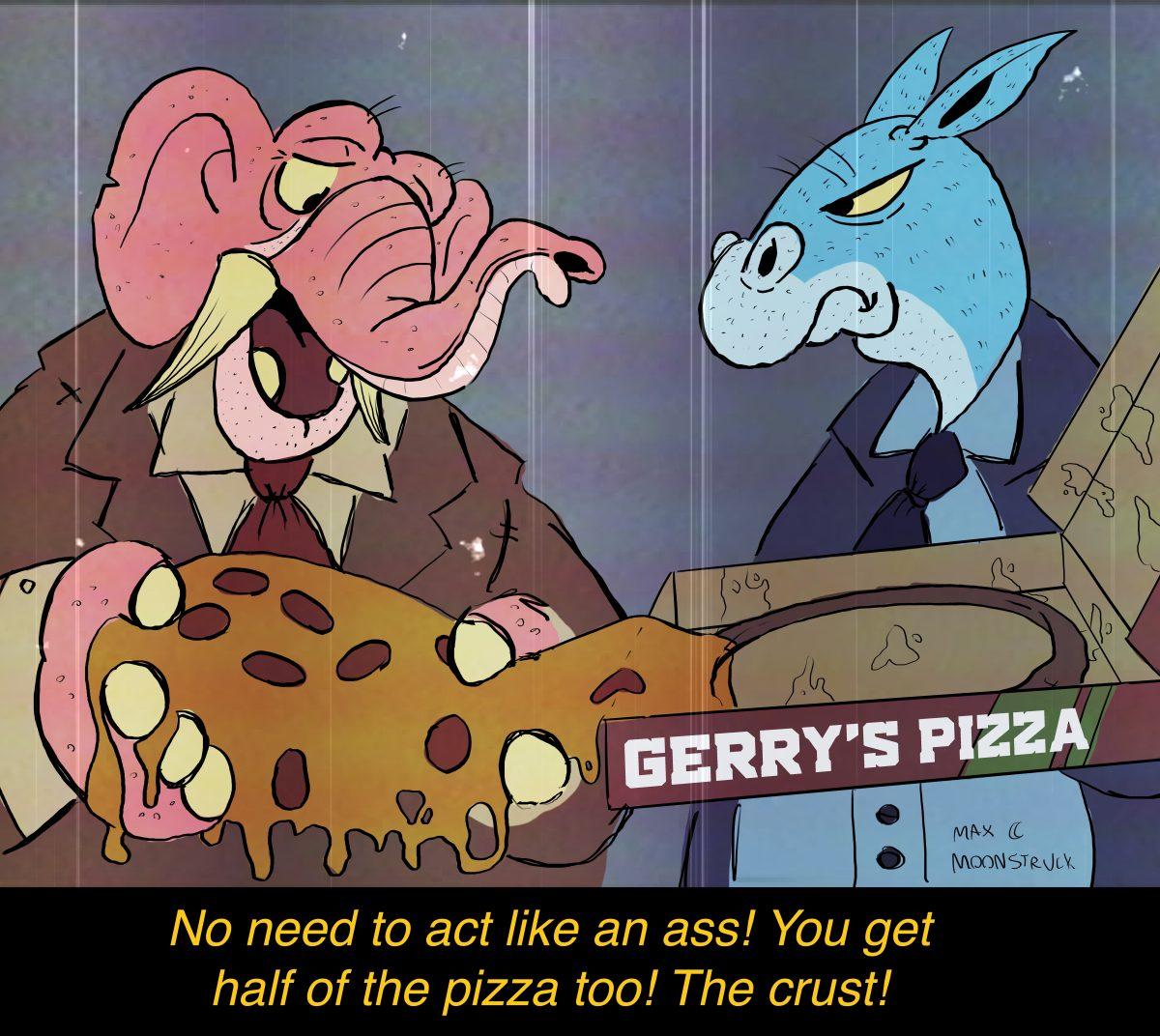The unsigned editorial is the opinion of Technician’s editorial board and is the responsibility of the editors-in-chief.
As the state gears up for municipal elections this week, state Republicans are already preparing to invalidate North Carolinians’ votes this time next November.
Yes, here we go again. After the North Carolina Supreme Court ruled previous maps violated guarantees of free elections and redrew the maps in 2022, state Republicans have again adopted maps that disproportionately favor their party.
For the last election cycle, North Carolina had maps that amounted to a 7-6-1 split for House of Representative seats — seven districts favoring Republicans, six favoring Democrats and one true toss up. Unlike the previous version, which gave Republicans a definitive 10-3 advantage, these court-mandated maps actually represented the state’s political makeup.
Unfortunately, the last election also flipped the state Supreme Court toward a conservative majority, who promptly threw out the old ruling. This has enabled Republicans in the General Assembly to pass new maps that will likely give the party 11 seats in the House — four more than were elected last year — and give them an eight seat edge on Democrats.
North Carolina is a true purple state. In the last four elections, we have thrice voted for a Republican presidential candidate, twice elected a Democratic governor and most recently sent an even split of House representatives to Congress. During the 2020 and 2022 elections, North Carolina held 16 federal and state races for statewide office — not a single candidate in any of them won more than 54% of the total vote.
The state is almost perfectly split in partisan affiliation. Nothing about these new maps come close to properly representing North Carolinians.
In the last election, North Carolina was an emblem of genuine democracy and acted as a national model for how a purple state should be represented. It was a perfect example of how a republic should operate — with a fair process that enables all voices to be heard and ably represented. We were left with one election period before a tyrannical political entity found an opportunity to seize complete and unadulterated control.
The state is constantly labeled as a battleground and swing state. Political advocates often push for more national involvement in North Carolina elections, with our partisan makeup creating the prospect of us being the quintessential battleground of democracy. Over and over again, this prospect is robbed of us by North Carolina Republicans.
These new maps will not only have national political implications, but will crucify our local voices. The newly enacted districts will systematically remove Representatives Jeff Jackson and Wiley Nickel from Congress, two of the most notable Democrats in the state.
Nickel’s 13th District is currently the state’s most competitive district and encompasses much of southeastern Raleigh, Johnston County and all of the area south of Centennial Campus, representing many NC State students. This district will now arbitrarily include four counties north of the University and Wake County, somehow cementing its status as a Republican stronghold. The adjoining Raleigh-Durham district will pack more blue voters into a condensed area, diluting the effect of most NC State voters.
The same effect extends to maps for the state’s General Assembly. The updated maps solidify the Republican Party’s supermajority status, with incredible drawings that stretch the imagination in defining representation.
For example, the new Senate District 2 stretches from Warren County, which borders Virginia in the Piedmont region, to the southern coastal county of Carteret. It is unlikely that one could travel from one end of the district to the other while staying within its boundaries without taking several ferry rides outside the district.
What common characteristics do these areas have that necessitate they share the same representative? Nothing, and that’s not what’s important to the map makers. What is important is that the district splits historically Black communities and dilutes their capacity to elect their favored representatives.
This is the farthest thing from what a functioning, representative democracy looks like.
Time and time again, North Carolina Republicans not only systematically manipulate the electoral system, but flaunt that manipulation openly.
This is corruption.
It’s the epitome of why people believe the system is broken and refuse to get involved in politics. It is a disgraceful disservice to the NC State community and all North Carolinian voters.
This matter is the most fundamental to a modern democracy. Without fair maps that accurately resemble communities, the people cannot be accurately represented. Simply put, these efforts are the most egregious form of recognized politics and should be called for what it is: a crime that spits on the essence of our constitution.
It is agonizing that again and again and again we have to run through this sequence. As journalists and political watchdogs in North Carolina, it feels as if we are Sisyphus pushing the boulder of untampered democracy. And pushing to absolutely no avail.
An even more disparaging sentiment is saying the only way to achieve change is through voting, the very freedom being taken away.
The most practical action is to recognize that the game is rigged. There is no hidden curtain, no puppet master with only strings visible. The whole picture is plain to see — state Republicans have mastered the manipulation of the board and have no intention of relinquishing their power for the betterment of our state. On a matter as simple as free participation in electing our representatives, something central to our rights as voters, we have been entirely disregarded.
Leave your affiliations at the door and see the bigger picture. No political matter affects every other one like this does. Without upholding this principle and acting in accordance with it, everything else is sure to fall apart. The NC State community needs to recognize this truth and mobilize for the sake of our state.










